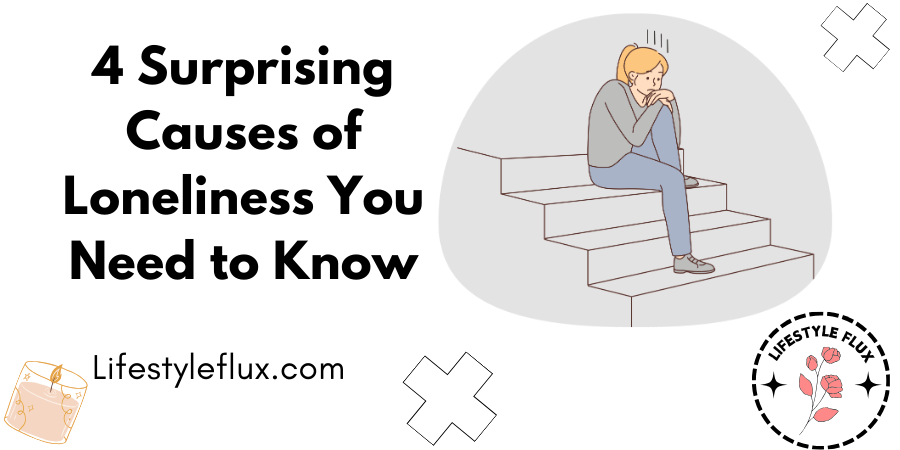You are not alone; you might have heard or read this phrase somewhere before. We say it to comfort or shoulder someone else’s pain to relieve that suffocating feeling of heartache and isolation.
When you’re picking up the pieces after a breakup or dealing with the loss of a loved one, you may feel like you’ve fallen into a dark hole with no way out. Loneliness can consume your entire life if you let it.
It can overshadow your work, cloud your goals, and leave you feeling aimless. It can rob you of the joy you’d get from fun things like your passions and hobbies. But the truth is you’re not alone in feeling lonely. Loneliness is a universal problem.
It can affect people of any gender, age, or status. You can’t buy a cure, nor can you pretend it doesn’t exist. Like depression or anxiety, feeling lonely is something you can’t control. In fact, loneliness is so powerful that it can cause you physical pain.
It can make your muscles ache, tie your stomach in knots, and ruin your sleep. It’s even one of the leading contributors to chronic diseases like Alzheimer’s and heart disease.
My point is loneliness is a real and overwhelming problem that many people struggle with every day. But you’re not doomed to sit in this dark hole for the rest of your life. There’s a way out.
You can slowly but surely take control of your life, but the first step is to identify why you’re there. Why do you feel lonely? What’s been keeping you down for so long? To help you face and overcome this paralyzing feeling, here are four reasons why you might feel alone in the world.
Table of Contents
1. Unstable Friendships
Friendships are one of the most common triggers of loneliness. Yeah, I know it sounds strange to say that spending time with other people makes you lonely, but that’s true.
Most people try to define loneliness as the absence of friends; they think that by having friends, they can never be lonely. Of course, that isn’t the case; isolation is when you don’t have friends, and loneliness is when you aren’t forming personal connections.
You might know hundreds of people but fail to really bond with any of them. You try to be social, yet no one understands you. You end up feeling empty and unhappy because none of your relationships go any deeper than a bit of small talk. So what’s the problem?
Many people come to this issue the wrong way when combating loneliness; quality matters way more than quantity.
You might feel lonely because your friendships are weak and unstable; either you haven’t put the time into building them, or you’ve just chosen the wrong people.
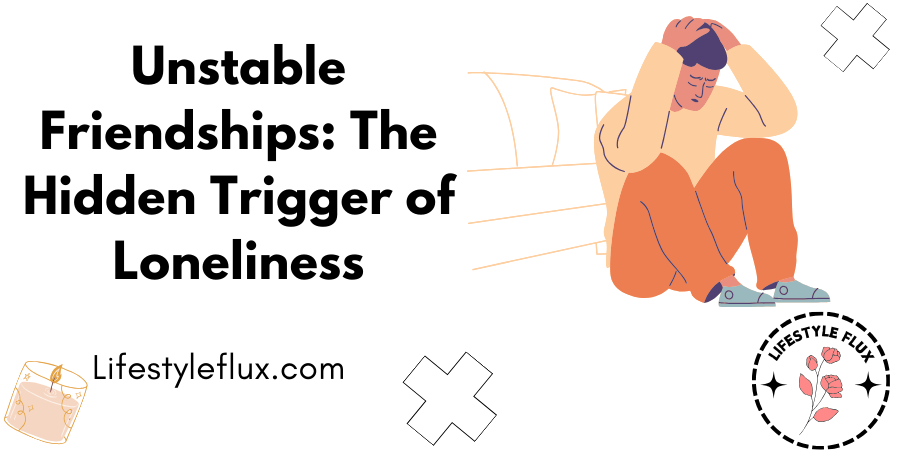
Everyone needs stable friendships; they make us feel heard, appreciated, and valued. You should eventually find these characteristics within yourself, but you have to start somewhere; if you’re feeling lonely, take an honest look at the quality of your friendships.
Stable friends respect each other, provide support, and build each other up. They give each other space and understand that you’re each your own individual person.
Unstable friends ignore and criticize you; they don’t value your time and effort as much as theirs, and they might think the entire friendship revolves around them. If you find yourself in an unstable friendship, set yourself free.
Some people hide behind toxic friends because they’re worried they’ll never meet anyone else; they already feel lonely, so wouldn’t that make things worse? Not at all. Give yourself the chance to find friends who understand and appreciate you.
There are a lot of cruel and self-absorbed people in the world, but there are just as many who are kind and considerate. In your friendships, you should get what you give; whenever that’s not happening, don’t be afraid to see what else is out there.
2. You’re an Ambivert
Loneliness isn’t always triggered by the people in your life. Sometimes, that emptiness is a product of who you are. When we think about personality types, we tend to place people into one of two categories: introverts and extroverts.
Despite how diverse our personalities can be, we make the mistake of treating it like a yes-or-no question. Are you an introvert? No, then you must be an extrovert, Right?
The truth is introversion and extraversion function more like a spectrum. If introversion sits at the far left and extraversion sits at the far right, 99% of people actually fall somewhere in between. In other words, almost no one is a hundred percent introvert or a hundred percent extrovert.
Even the most outgoing social butterflies sometimes enjoy themselves, while lone wolves occasionally like having company. Since everyone’s got a little of both, most people are actually hybrids and called ambiverts. We usually use this term to describe someone who’s a 50/50 split between introverted and extroverted.
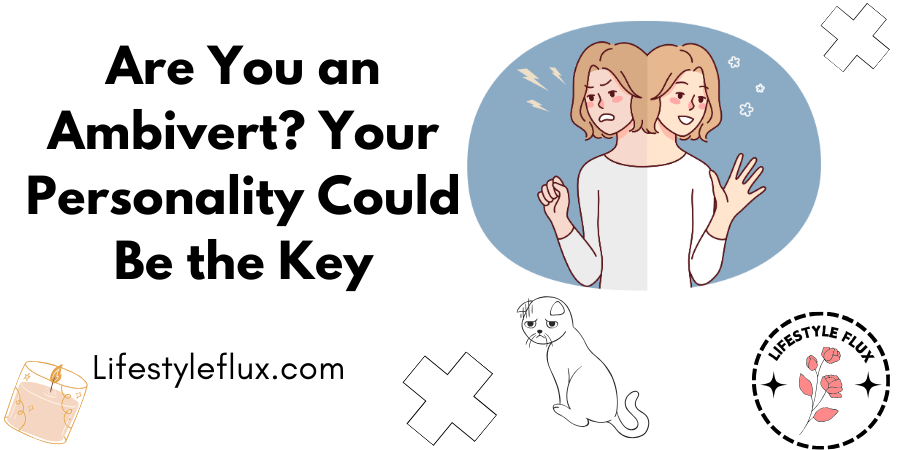
But in reality, almost all humans are ambiverts because our personalities cannot be defined by one set of characteristics. Your mood, mental health, and environment can all drastically affect how you behave and see yourself. To make things more complicated, your personality may change over the next 5, 10, or 20 years from now.
You might love to be alone right now, but a few years from now, you may find yourself doing the exact opposite. So, what does all this have to do with loneliness? Well, many people characterize themselves incorrectly.
Because they get hung up on one of these labels. Okay, let’s say you’re quiet, you find social interactions draining, and you prefer to work alone; it sounds like you’re an introvert, right? You might isolate yourself, thinking it’s good for you, but you’re neglecting the little extrovert inside you.
That small part of you wishes that you could socialize and make connections. It gets energized and inspired by interacting with other people, even if you’re 95% introverted.
You can still feel lonely when you’re constantly isolated, and it works the other way around – Have you ever felt alone in a crowded room? Even if you’re extremely extroverted, you can feel lonely when you’re surrounded by people. Why? Because the introvert inside you craves something deeper and more personal, it wants you to make fewer, more meaningful connections.
How can you use this knowledge to stop feeling lonely? Well, your loneliness might actually stem from your habits. You’ve only been catering toward one side of your personality while the other is left unfulfilled.
This can leave you feeling empty and out of place, so try diversifying your habits and spending time doing things you wouldn’t normally do. Try things that scare you; if you’re an introvert, surround yourself with new people.
If you’re an extrovert, take more time to get to know yourself and the people closest to you. You don’t have to do it all the time, but trying out new social experiences can be enough to satisfy your little introverted or extroverted side.
Remember that no person can be defined by a select few words. While labels like introvert, extrovert, and ambivert give you a general idea of what you enjoy, you should never stop searching for new ways to make yourself happy.
3. Perfectionism
Some of the loneliest people spend their entire lives chasing perfection; they claim they just like to do things right. But that’s rarely the case. Deep down, social perfectionists are often afraid to do anything unless they can do it flawlessly.
They never meet new people because they’re scared of rejection. They don’t chase new opportunities because they’re worried about failure. In other words, if they never mess up, nothing can hurt them.
Unfortunately, things are never going to be perfect. For example, a perfectionist might avoid being vulnerable until the perfect person comes around, but they never learn what types of people they can be vulnerable with.
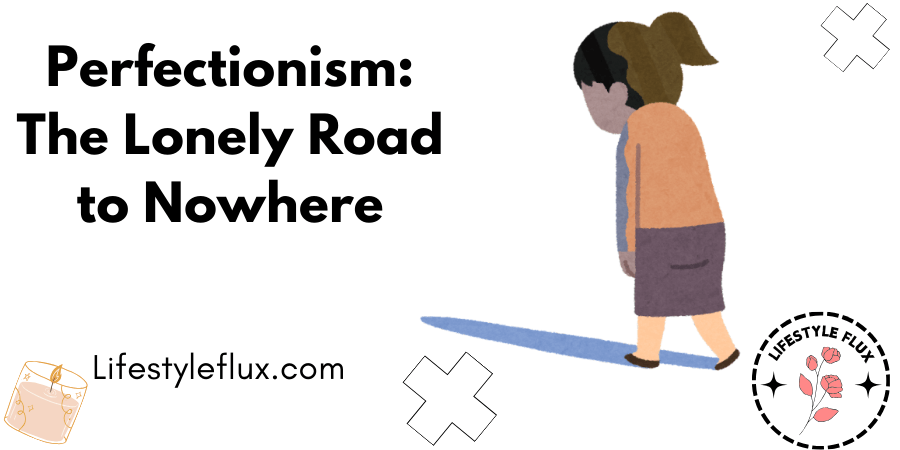
In life, you’ll have all kinds of friends; some will be unstable and disappointing, while others will be fun and supportive. You have to wade through the bad to get to the good, but perfectionists never do. They don’t fail enough times to find success; some people try to mask their loneliness with jobs, hobbies, and pets.
But that feeling of emptiness may never go away; years later, you’ll end up looking back and regretting the chances that you didn’t take. Regret is actually a feeling that goes hand-in-hand with loneliness.
In this case, you feel regret when you could have made yourself happy but didn’t; you could have potentially changed your life for the better but got scared. Perfectionists think they’re going to regret that time they failed or made a dumb mistake.
But those errors eventually turn into funny stories and learning experiences. On the other hand, regretting a missed connection or opportunity may keep you feeling lonely for years to come.
4. High Expectations
When you’re trying to be friends with someone new. What do you expect from them? Do you expect them to make you laugh? Do you expect them to blow your mind with all the amazing things they’ve done, or do you just want them to be fun and kind?
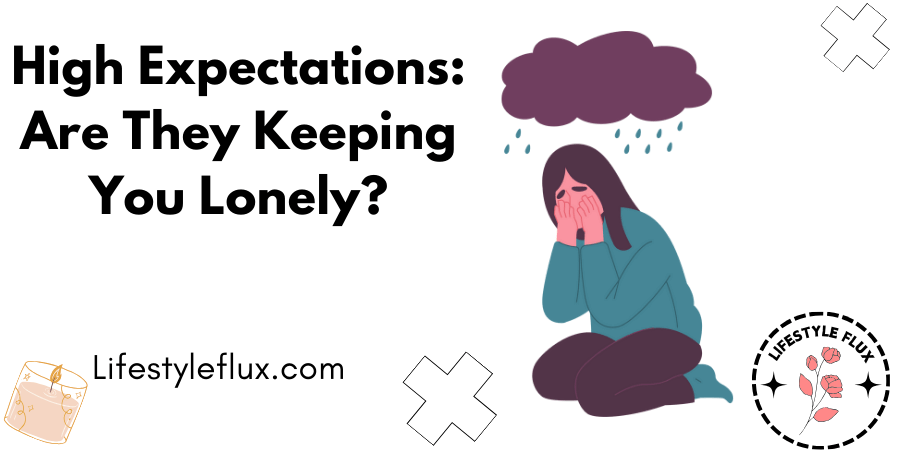
You might be lonely because you believe everyone has unreasonably high expectations more often than not. They’re entirely in your head, just like you don’t expect extraordinary things from them; they don’t expect those things from you.
This kind of mental obstacle keeps you from making connections and filling that void in your life. Imaginary expectations also ruin your self-esteem. You shouldn’t go through life feeling like you aren’t worthy.
Try to remember that strangers are people just like you. You don’t have to prove yourself to make them like you, and you don’t have to show off your talents, knowledge, or status. Just be open, happy, and respectful. In the end, those are the people that make the best friends.
Conclusion:
Many people struggle with loneliness, but it doesn’t have to define their lives. Whether it’s unstable friendships, personality complexities, perfectionism, or unrealistic expectations, loneliness is often rooted in patterns that we can learn to understand and change.
By identifying the reasons behind your feelings, you can take the first step toward freeing yourself from emptiness and building meaningful connections. Remember, loneliness doesn’t mean you’re broken or unworthy—it’s a signal that something in your life needs attention.
You’re not alone on this journey, and with time, effort, and self-compassion, you can build fulfilling relationships and inner peace. Start small, take it one step at a time, and believe that brighter days are coming.

Founder and CEO of Lifestyleflux.com, I bring years of expertise in self-improvement, wellness, and personal development to help you lead a happier, more balanced life. Through practical insights, eBooks, and consultations, I share actionable strategies rooted in experience and a passion for empowering others to unlock their full potential.

